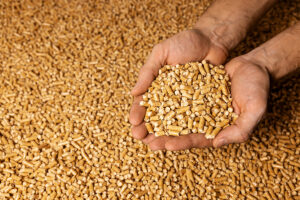Fossil fuel reliance stalls EU pellet market growth, according to Bioenergy Europe

The report analyses the development of the world’s pellet market over the past year with a deep dive into the European market.
“Despite significant progress, our industry's growth is being stunted by the EU's continued dependence on fossil fuels. It's imperative that we accelerate the transition to renewable energy sources to stabilise energy prices and combat climate change effectively,” said Bioenergy Europe secretary general, Jean-Marc Jossart.
After two years that saw record consumption and production, as well as record sales of pellet-based appliances, the global pellet industry in 2023 has been facing significant challenges, found the report.
The production and consumption of pellets stagnated worldwide, breaking a tw0-decade-long trend of uninterrupted growth.
Despite slight contractions in the market, the European Union remains the world’s largest pellet producer and consumer.
It produces 44% of the worlds pellets and consumes 50%.
The challenges facing the European pellet industry are threefold: higher input prices, falling industrial demand, and a record warm winter.
Electricity, a key cost for pellet production, remains more expensive following the energy crisis leading to elevated pellet prices.
Higher pellet prices and a volatile energy market have caused power-only producers to significantly scale back on production.
Finally, record high temperatures during the winter reduced the need for heating, decreasing the demand for pellets.
Despite the challenges the use of pellets for heating in the residential market remained strong.
In 2023 the share of residential and commercial consumption of pellets reached 59%, the highest in a decade.
Pellet heating is a good option for households, especially in rural areas rich in biomass with lower connections to the energy system. Biomass heating reducesheat-related electricity demand at the time of year when renewable electricity production is often lower and less efficient.
By reducing the load on electricity grid, bioenergy can complement electrification, lower electricity needs, increase energy efficiency, and safeguard the EU’s energy future.
To fight climate change and increase Europe’s energy autonomy, the new EU leadership needs to ensure a wise implementation of the Green Deal while continuing to replace fossil fuel with renewables such as bioenergy from wood pellets, continued the trade association.
To that end, Bioenergy Europe has put together three proposals for the new EU leadership “3 Steps Towards the Energy Transition”.















